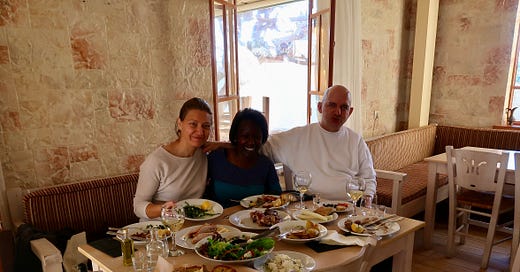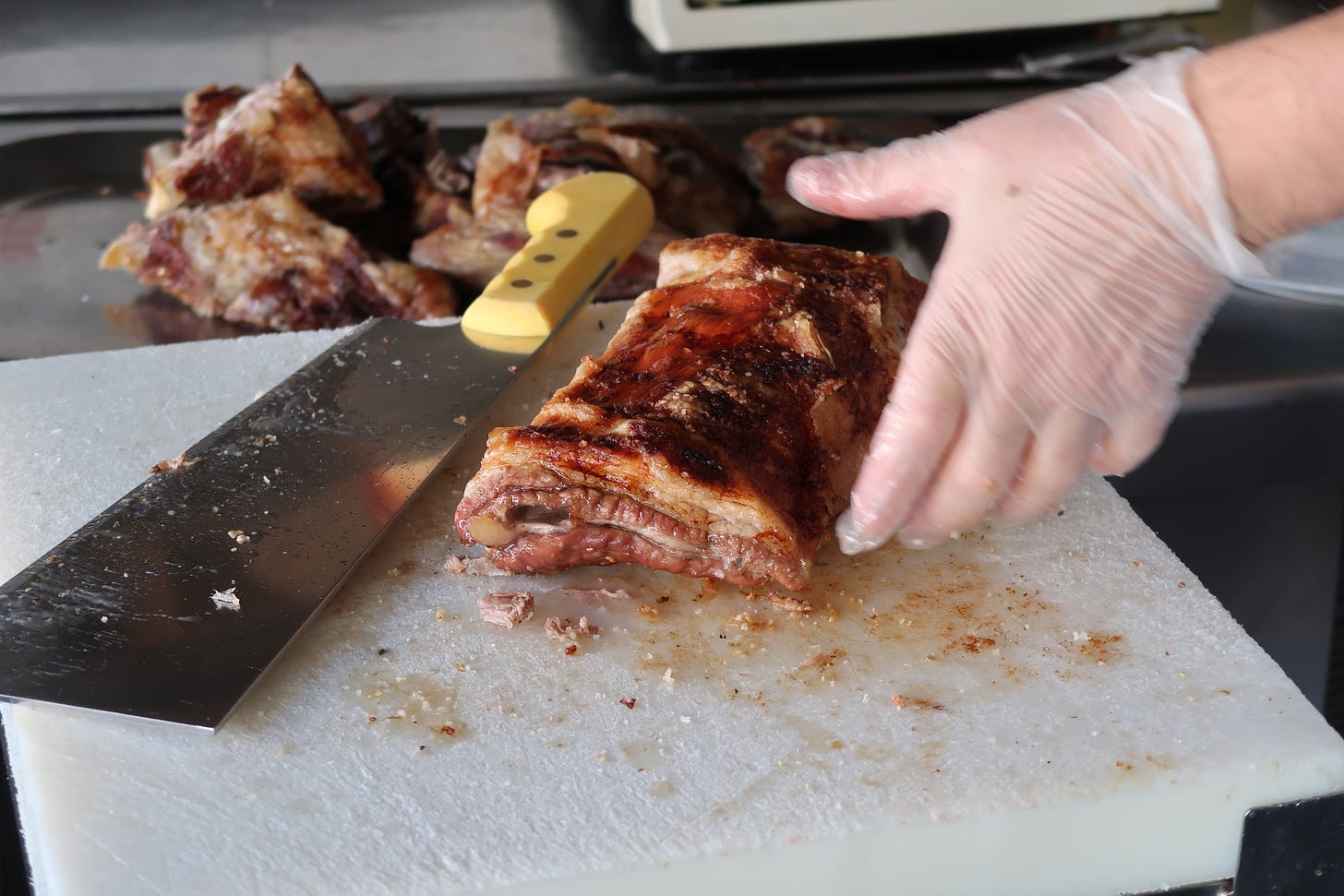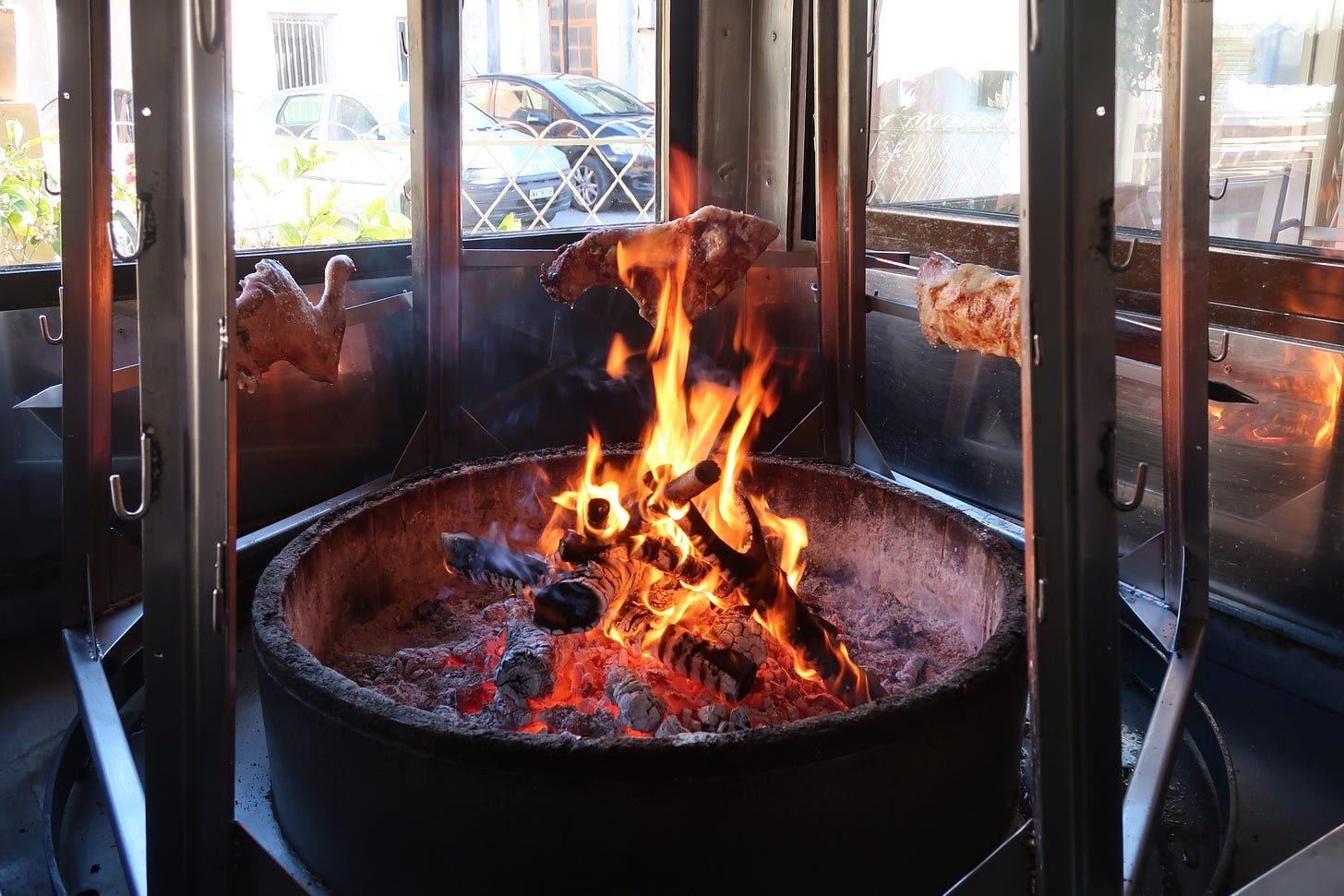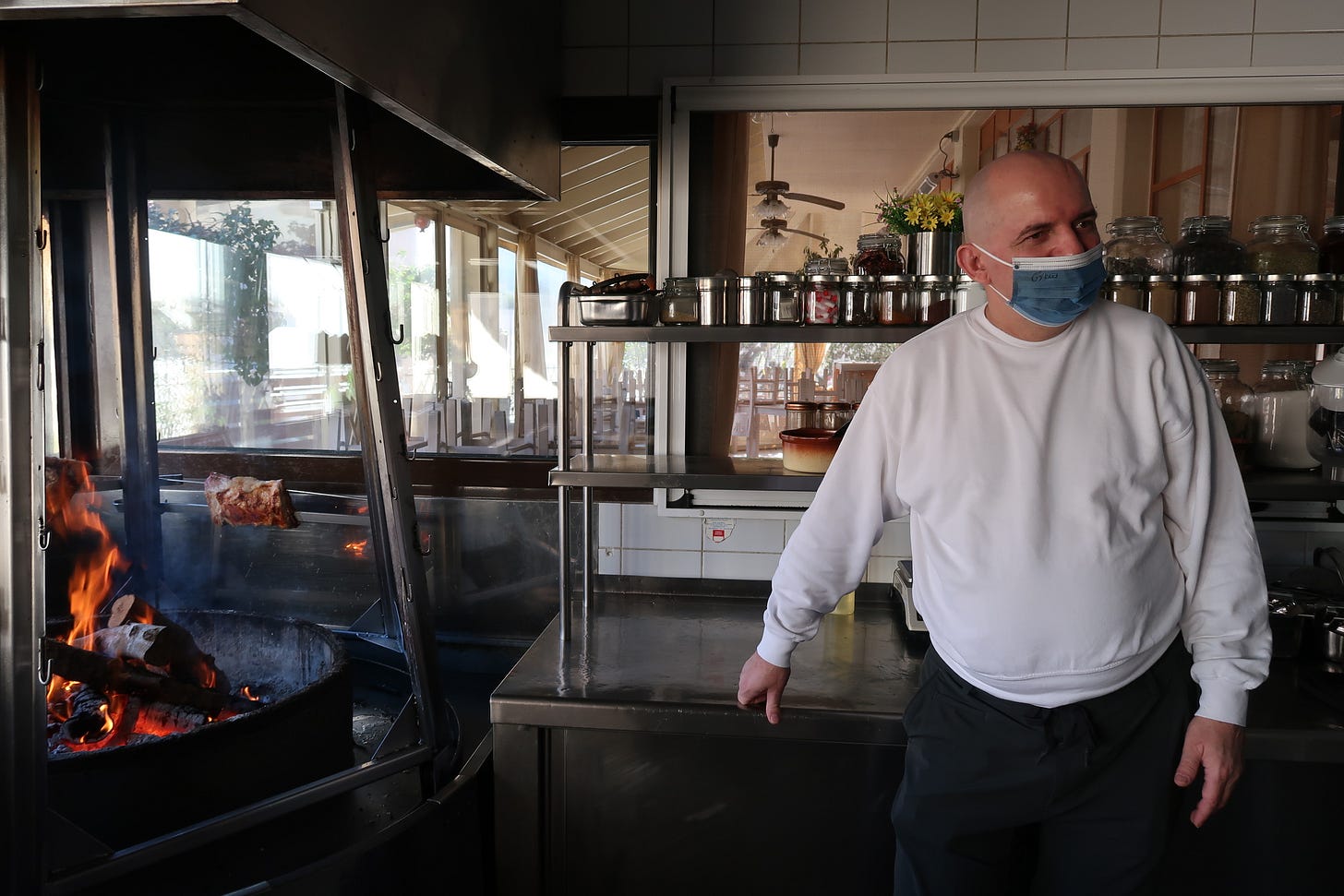I’ll never forget looking into Zoran’s eyes and seeing his look of desperation. The pain as he described the impact of the pandemic on his restaurant.
The global shutdown almost killed his restaurant, and, in turn, it almost killed him.
It was our first time visiting the island of Crete, and we based ourselves in Chania.
The world had just shut down, which was not exactly the best timing for our culinary research and explorations.
Nonetheless, we remained undeterred, determined to do the best we could given the circumstances.
As part of our quest for authentic food in Crete, we wanted to experience Antikristo, a traditional Cretan technique of cooking lamb, goat, and other meats.
This cooking style, which means "across the fire," has been practiced in Crete since antiquity.
On The Quest
One afternoon, we decided to visit To Antikristo Restaurant, just outside the center of Chania, to see if they offered any takeaway options.
Unfortunately, when we got there, the restaurant was closed.
Determined, we decided to contact the owner, Zoran, to learn more about this unique traditional cooking style.
What happened next blew our minds.
Despite the pandemic-related restrictions, Zoran graciously invited us to his restaurant for a demonstration of Antikristo.
“Shepherds in the mountainous regions of Crete”, he told us, “would cook in this simple manner using only salt and fire”
The meat, most often lamb, is cut into pieces and passed through huge skewers. The skewers are placed opposite each other around a fire.
The meat would cook slowly with the heat generated by the flames instead of in direct contact with the flames.
At his restaurant, Zoran told us, he cooks the meat for about 4 to 6 hours, which makes it juicy and tender.
This technique, we learned, helps the meat develop its rich flavors while the salt dehydrates it making it crispy.
In addition to Antikristo, Zoran surprised us with Cretan starters, salads, wild greens, and kalitsounia cheese pies with honey for dessert.
This entire experience was completely unexpected. We thought we would simply interview Zoran to learn about the food and cooking techniques.
But never expected to be surprised with a Greek feast.
Feasting on Hope
As much as he gave to us, we didn’t realize it then, but we also gave so much to him in return.
When he received our message, he told us, “For the first time in several weeks, I felt hope again.”
“The restaurant I had built successfully once again mattered,” he added.
It was not just Zoran at the restaurant that day, his wife and two servers joined him.
Although we were the only guests there, opening the restaurant and having his staff work again filled him with a sense of purpose.
We were a bright opening in the midst of the closed unknown.
That lifted his spirits and ours collectively.
Throughout our discussions, the themes of meaning, significance, and hope were threads that laced our conversations about Cretan food specialties and the pandemic.
Beyond the culinary delights on the table, we delved deeper into the profound connections food can foster, even in the toughest times.
As we sat around the table, I felt immense gratitude to Zoran for opening his restaurant to us despite the restrictions.
He thanked us profusely as we left the restaurant. His eyes looked back at us with “hope” and a belief that his life’s work mattered.
While the pandemic closed the world, I found that bonds created over food can become a lifeline of hope.
After the pandemic To Antkristo Restaurant rebounded. It is open and has once again reclaimed its position as one of the top restaurants in Chania for Antikristo.










Fascinating, Rosemary! And such a lovely story of sharing love of food.
Question: was the meat spit roasted? Almost like a rotisserie? The photo seems to show a fairly large piece of meat. Did the skewer turn or were the skewers roasted around at all??
Yum!